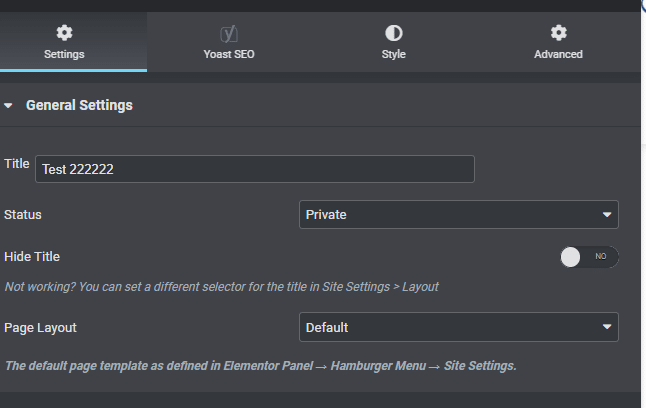
Graduation day has passed, you’ve framed your degree, and you’re frantically sending out your resume and cover letter to any job opening that seems remotely interesting. Maybe you’ve even determined how long a cover letter should be to place yourself in the best position for potential employers. There’s a lot to do before applying to and accepting your first job.
After running the gamut of job search sites and interviewing and meeting with recruiters, you’re ready to start your career path. Then, it finally happens: You get a phone call from one of the recruiters with a formal offer. You want to jump up and down or scream with joy, but you hold your composure on the phone. After all, you don’t want to accept without considering all the terms of the offer.
There’s important information you still need to consider before you accept a job offer. You need to make sure this is the right opportunity for you. Here are 10 questions you should consider as you review the offer.

1. What is the salary?
If you haven’t already asked the hiring manager, now is the time to find out how much money you will be making. You’re in the real world now, you have bills to pay, and you want to make sure that you’ll have enough to cover your living expenses. It’s not taboo to negotiate your salary, entry level or not, so if you feel the value you bring is worth more than what the company is offering, ask if there is room to negotiate.

2. Is there opportunity for career growth?
While you’re excited that you’ve finally received your first job offer acceptance letter, it’s important to remain objective and think about your future. You don’t want to jump into a dead-end position that will leave you back on the job hunt a year from now, so ask about career development. Many companies have a path to promotion, so ask if there will be an opportunity to grow and develop within the organizational culture. For example, ask above job descriptions above you, how to get there, and how often employees change job titles. A company that’s committed to employee growth will serve you well in the future.

3. How would you describe the company culture?
This is, by far, one of the most important questions you can ask. The culture of a company can dictate how happy you’ll be at the company and can even impact your success. Do you thrive in a collaborative environment where all team members work together? Or do you prefer working independently? Is the team close-knit? Do they take lunch together often? The company’s response to these questions can tell you a lot about how you will fit in. You’ll be able to grow and thrive in an environment where your working and communication style match that of your team.

4. What is included in the benefits package?
Salary and benefits are part and parcel of each other. So before accepting any offer, you should know what benefits the company offers. Do they have a 401K program that the company matches? What is the premium for health insurance? Your wellbeing is important, and you want to make sure that the company is providing resources that allow you to care for your health without worry.

5. How much vacation and sick leave do I get?
Is travel important to you? Do you want time to visit your family? You’ll definitely need to ask the human resources department about vacation and sick time. Some companies don’t allow any time off for the first 90 days. You’ll want to know about that in advance so you don’t plan any getaways during that period. It’s important to take time to yourself and recharge, so make sure the company offers enough vacation time to combat burnout.

6. Are there other perks?
Aside from benefits and vacation time, there are other things companies can offer that increase employee satisfaction. The option to work remotely, office parties, team-building activities, community volunteerism and charity events, and the opportunity to travel or learn new skills are all amazing perks that will drive your happiness and allow you to work at your full potential. Consider what aspects are non-negotiable for you so you’ll be able to better evaluate this offer.

7. How will you measure my success in this role?
If you haven’t asked this question in the interview process, now is the time to ask. Having a clear idea of how you will be evaluated tells you a lot about how the company operates and what you need to do to be successful. Now is also the time to negotiate for a 90-day review so you can check in with leadership to ensure you’re performing your job duties flawlessly. This allows you to correct any behaviors that may be detrimental to your future success, helping you grow and evolve as an employee.

8. What is my future manager’s leadership style?
You’ve likely met your future manager at this stage, but it’s important to ask about their management style. Do they like to micromanage? Do they travel a lot, making them less available for questions? These are all important things to know before accepting an offer. If your working style will not mesh with that of a micromanager, this may not be the right fit for you.

9. Will I have a mentor or internal advocate?
While you have already asked about career growth, it’s also good to know if the company has a mentorship program. Since you’re coming in with limited experience, a mentor can prove invaluable in your first few months. While it may not be a must-have, it could move the needle toward acceptance if you find out a company offers this type of program.

10. Ask yourself: Am I excited about this offer?
The last question to ask before accepting a written offer is a question to ask yourself. After learning everything about the offer, the company, and the benefits, are you excited about this offer? If you’re thinking of taking the job because it’s your only offer, but you’re not thrilled about the company, you likely won’t be happy in this role. If you’re feeling enthusiastic and passionate about the job and the company, now is the time to sign on the dotted line.
While you may be fresh out of college, always remember that you don’t need to accept your first offer and must advocate for yourself. You want to set yourself up for long-term success, and that means finding the career that fits your skills and finding a company that supports your growth and fosters a great working environment. After asking all of these critical questions, you should have a better understanding of the position. Only then can you evaluate the offer objectively and decide what response is best for you.
Andrei Kurtuy is a co-founder and CMO of Novoresume, an online resume and cover letter builder that will help you skyrocket your career.










